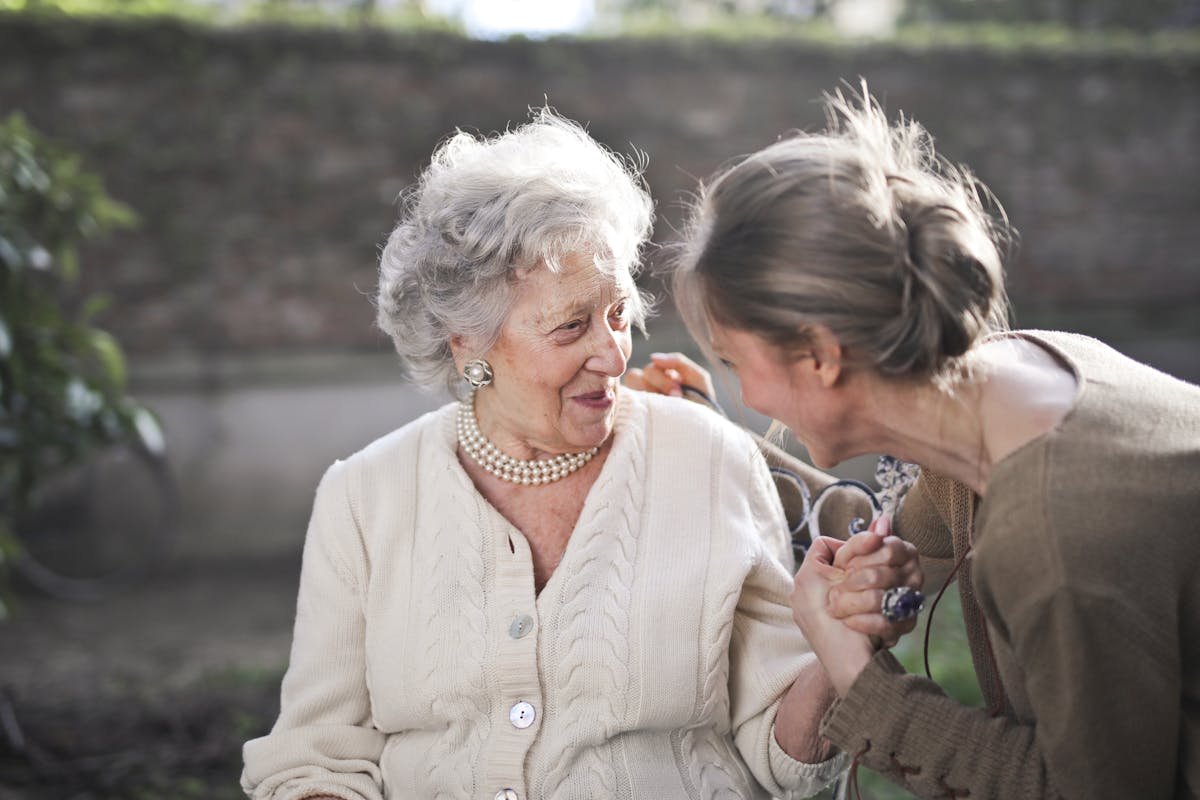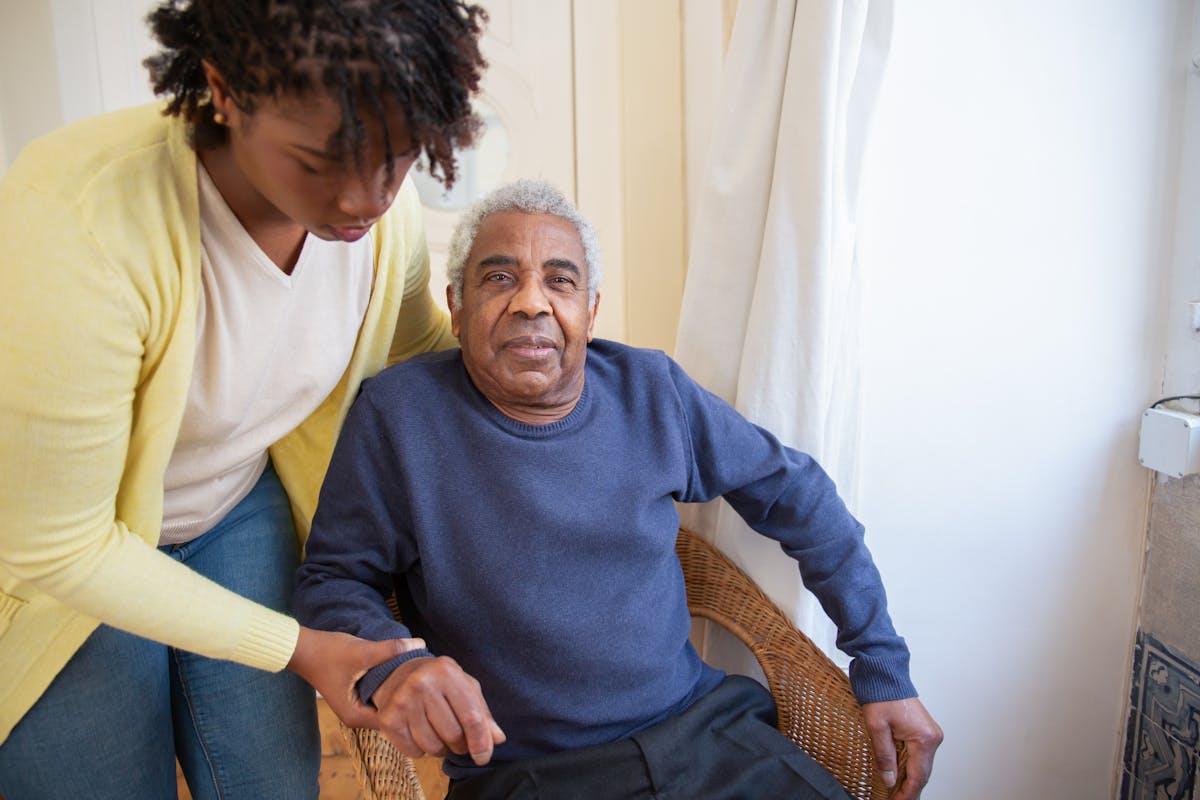
- Engage in open conversations about care preferences, prioritizing honesty and clarity with your loved one.
- Prioritize caregiver self-care through emotional support from friends and counselors and joining support groups.
- Create lasting memories with your loved one through simple, meaningful activities like walks and reviewing photo albums.
- Seek a supportive community and respite care services to manage caregiver stress and ensure personal well-being.
Caring for a loved one with a terminal illness can be emotionally, physically, and mentally draining. It’s a challenging time for both the caregiver and the person receiving care. Many families choose to care for their elderly loved ones at home during this challenging time to provide comfort and support in familiar surroundings. If you find yourself in this situation, here are essential tips to help you navigate the journey of caring for an elderly loved one with a terminal illness at home.
Create a Comfortable Environment
Make sure your loved one’s living space is comfortable and conducive to their needs. Creating a safe and comfortable environment will help alleviate stress and improve the quality of life for both you and your loved one. Here are four things you can do to create a comfortable environment:
Ensure Accessibility
Make sure your loved one’s living space is easily accessible and free of hazards. Consider installing grab bars in the bathroom, removing tripping hazards such as rugs, and providing mobility aids if needed.
Personalize the Space
Add personal touches to the living space, such as family photos, favorite books, and comforting items to help your loved one feel more at ease. You can also incorporate elements of nature, such as plants or flowers, to bring a sense of peace and tranquility.
Maintain a Comfortable Temperature
As people age, their ability to regulate body temperature decreases. Keep the living space at a comfortable temperature to prevent your loved one from becoming too hot or cold.
Keep it Clean

A clean living space is essential for good hygiene and preventing the spread of germs. Regularly clean and disinfect surfaces, and make sure bedding and clothes are washed frequently.
By ensuring accessibility, personalizing the space, maintaining a comfortable temperature, and keeping it clean, you can create a relaxed environment that promotes the well-being of your loved one. Remember to also regularly check in with them and ask if there is anything else you can do to make their living space more comfortable.
Seek Professional Help
While you may want to do everything yourself, it’s essential to seek professional help when caring for an elderly loved one with a terminal illness. Consider hiring a reputable home care provider to assist with daily tasks such as bathing, dressing, and medication management. This will not only lighten your load but also ensure that your loved one receives the best possible care. Choose a provider that specializes in end-of-life care to ensure your loved one’s needs are met.
Communicate Openly
Communication is vital when caring for an elderly loved one with a terminal illness. Be honest about their condition, treatment options, and prognosis while also being empathetic and supportive. Encourage open dialogue about fears, hopes, and wishes for end-of-life care. By fostering open communication, you can ensure that your loved one’s wishes are respected and honored.
Take Care of Yourself
Caring for an elderly loved one with a terminal illness can be all-consuming, but it’s crucial to take care of yourself as well. Make time for self-care activities such as exercise, relaxation techniques, hobbies, or spending time with friends and family. Remember that you cannot pour from an empty cup, so prioritize your own physical, emotional, and mental well-being.
Seek Support
You don’t have to go through this journey alone. Reach out to family members, friends, support groups, or counselors for emotional support and guidance. Joining a caregiver support group can provide you with valuable resources, tips from others who have been in similar situations, and a sense of community during this challenging time. You can also seek respite care services to give yourself a break and recharge.
Make Memories
Spend quality time with your loved one and create lasting memories. Take walks, watch movies, look through photo albums, or simply sit and talk. These moments are precious and will be cherished by both you and your loved one. Consider creating a memory book or recording their stories for future generations to remember them.
Navigating the path of caring for an elderly loved one with a terminal illness is a profoundly personal and challenging experience. It demands a blend of compassion, resilience, and practicality, ensuring the dignity and comfort of the individual while also attending to the caregiver’s well-being.
You can make this difficult journey a bit more manageable by engaging in open conversations, prioritizing self-care, seeking a supportive community, and cherishing every moment spent together. Remember that it’s about the care you provide and the love and memories you share during this precious time. Ultimately, these moments of connection and care will serve as lasting testaments to the strength of your bond and the depth of your love.

